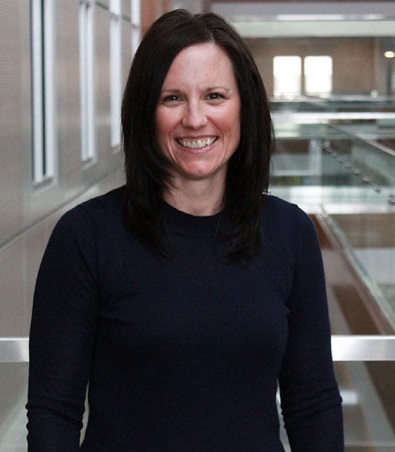Charlene Thompson. Photo courtesy of University of Saskatchewan.
A University of Saskatchewan PhD student will be looking at inequities in health care access in First Nations communities during a three-year study.
Charlene Thompson was awarded a $108,000 grant from the Canadian Institutes of Health Research, which will support her project to develop a model for improved delivery of health programs in Indigenous communities. A major focus of Thompson’s research will be incorporating feedback from the communities’ front line health workers.
“Front line workers have a lot of valuable knowledge to share,” said Thompson. “They know the community they work within, they have an on the ground view of the needs of the community, but their input hasn’t been accessed a whole lot.”
Thompson says those workers are an untapped resource when it comes to information that works for health programming, what the barriers are to health care and ways to improve health programming in First Nations communities.
During her research, Thompson will also be talking to community leaders and elders on the issues Indigenous people face. She also says the communities she ends up working with will help shape the input, so that it is a collaborative approach.
As for which Saskatchewan communities will be the basis of her research, Thompson hasn’t picked any yet, but she did say one would be closer to an urban centre and the other in a remote area. Thompson says the approach she takes will not be a one size fits all result.
“Because each community is unique, there is no universal solution, but I hope this project will be useful starting point for other communities,” said Thompson.
She says that developing a model based on front line workers’ priorities will help pinpoint the community’s specific needs and target improvements to health care programming in the right places, leading to a healthier population.
The ultimate aim is to take positive steps towards closing the gap in health inequities between Indigenous and non-Indigenous people.
She says there are a lot of different factors that come into play when it comes to the overall health of a community.
“It’s income and education and other barriers that come into play. Being healthy combines a number of components, like mental, physical, emotional and spiritual well-being,” she said. “If you are feeling healthy, you can do better in school or feel better about your job and it’s really interconnected with every part of life.”
Her first big challenge will be to find the two communities to work with.
“My goal is to connect with communities who are open to trying this project out to see if we can make a positive impact,” she said. “I would also like to build long-term working relationships, so I can continue to be of service to the community after the project has finished.”
In the end, she says her research could be used a model for other First Nations and Indigenous communities.
“Sometimes there are broad results that come out of a community that can be enacted elsewhere. It’s called scaling up”, she said. “Things that have worked in some communities can be scaled up into others, taking into account it has to be tailored to fit that community.”
